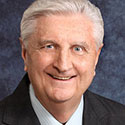Which is More Frightening: Global Warming or Demographic Winter?
By MercatorNet – Navigating Modern Complexities

Ross Douthat holds the dubious distinction of token conservative at the New York Times. Of course, what passes for conservative at the Times doesn’t hold a candle to what’s considered conservative here in the Shenandoah Valley of Virginia. Nonetheless, Mr Douthat leads me to believe that his employment notwithstanding, he may be aware that flyover country matters. Word is that he is a practicing Catholic, truly a fish out of water at the once-venerable Gray Lady of American journalism.
Earlier this year Mr. Douthat posted an eminently sensible column, “Five Rules for an Aging World” that should have gotten legs more than it did. Maybe that was because his opening paragraph was a slap upside the head to the smart set:
There are two kinds of people in the world: Those who believe the defining challenge of the 21st century will be climate change, and those who know that it will be the birth dearth, the population bust, the old age of the world.
Whoa!
How dare this guy even compare the birth dearth with today’s sacred cow climate change! Does he not want to save the planet? But how about saving humanity? Interestingly, large-scale ecological fearmongering began in the 1960s when the old conservationist movement was co-opted and rebooted as Environmentalism, Inc. Then came global warming gloom-and-doom, now rebranded as climate change, a quasi-religious creed predicting the End Times for secularists everywhere. Keep in mind that climate is always changing, but don’t confuse me with the facts.
Mr Douthat continues:
[I]t’s important for the weird people more obsessed with demography than climate to keep hammering away, because whatever the true balance of risk between the two, the relative balance is changing. Over the last 15 years, some of the worst-case scenarios for climate change have become less likely than before. At the same time, various forces, the Covid crisis especially, have pushed birthrates lower faster, bringing the old-age era forward rapidly.
Demography nerds vindicated in the NYT! Who’d a thought?
What next?
Yes, the world is rapidly ageing, fastest in the Global North. Talk about a Great Reset. Most of society’s institutions are predicated on growth; that is slowly but surely coming to an end. What then?
Mr Douthat has given it some thought. Too bad more elected officials don’t do so as well. The survival of the species depends on the health of the family, which is not on the political class radar screen. More pressing concerns preempt that, such as mollifying moneyed special interests. That’s just how “democracy” works.
So, an ageing world is what we’ve got, and we’re stuck with it for the foreseeable future. As the Boy Scouts say, “Be prepared.”
Generational change
The US government calls our Social Security scheme an “entitlement” program. I guess if you’re required to pay into something your entire career on the basis that you’ll be paid back, then you’re “entitled” to those payments, much as you’re “entitled” to receive goods that you pay for at the corner store.
But the Social Security Trust Fund has been looted (thank you, US Congress), so now we have a ginormous Ponzi scheme of the sort which Bernie Madoff could not have imagined. Every few years steps are taken to keep the Fund solvent. Today the baby boomers, the last generation of above-replacement fertility, are drawing Social Security like nobody’s business.
Boomers are also the last generation to thrive on post-World War II prosperity resulting from US industry not having been bombed to smithereens. Consequently, they hold a disproportionate share of individual wealth. This sets up a generational issue where younger workers bear the burden of a dysfunctional dependency ratio. There is no end in sight, because not enough children are coming along to pay into the system and pick up the slack.
Our ageing world will change everything. Ageing societies lose their dynamism and creativity. With a lack of youngsters coming along, there will be fewer scientists, workers, innovators, and taxpayers. A shrinking workforce will require greater reliance on artificial intelligence; fewer soldiers will mean a military more dependent on high-tech defense.
Infrastructure maintenance costs will rise even if population decreases. Costly bridges, highways and water systems do not shrink along with population. Below-replacement fertility is beginning to reveal these unanticipated costs.
African migration
It is Mr. Douthat’s 5th rule for ageing populations that gets the most attention: “The African diaspora will reshape the world.”
The faster aging happens in the rich and middle-income world, the more important the fact that Africa’s population is still on track to reach 2.5 billion in 2050, and reach four billion by 2100. The movement of even a fraction of this population will probably be the 21st century’s most significant global transformation. And the balance between successful assimilation on the one hand, and destabilization and backlash on the other, will help decide whether the age of demographic decline ends in revitalization or collapse.
Sub-Saharan Africa is the only remaining region with above replacement fertility. Yet fertility there is now falling faster than projections. Uranium-rich Niger, a global flashpoint following the recent military coup, leads the pack with a fertility rate of 6.7. The sub-Sahara region relies on resource extraction and foreign aid. There is high unemployment and a low-skilled workforce.
African migration is indeed reshaping Europe. That has been problematic, as there is thus far no “balance between successful assimilation… and destabilization and backlash.” Importing too many too fast impedes assimilation. Finding employment in deindustrializing Europe is a challenge. Shrinking immigration-resistant East Asian societies do not have massive African or other immigration. Those countries still retain social cohesion, something lost across the multicultural West.
Then there is the culture clash. The traditional African way of life is tribal, less structured and more laidback than that of Europe. Further, militant Islam is robust within their ranks, rattling secularist Europe. Impoverished African enclaves are plagued with crime. Popular resistance to this migration is marginalized as far-right, xenophobic, racist, etc. Meanwhile the globalist political class doubles down, imposing an unwanted multicultural dystopia on their increasingly alienated subjects. The ensuing wage suppression and social tension is totally toxic for families.
Europeans should wake up and smell the coffee before they lose everything.
‘Tis all rooted in demography.
AUTHOR
LOUIS T. MARCH
Louis T. March has a background in government, business and philanthropy. A former talk show host, author and public speaker, he is a dedicated student of history and genealogy. Louis lives with his family in the beautiful Shenandoah Valley of Virginia.
EDITORS NOTE: This MercatorNet column is republished with permission. ©All rights reserved.

This article is courtesy of DrRichSwier.com, an online community of citizen journalists, academics, subject matter experts, and activists to express the principles of limited government and personal liberty to the public, to policy makers, and to political activists. Please visit DrRichSwier.com for more great content.

